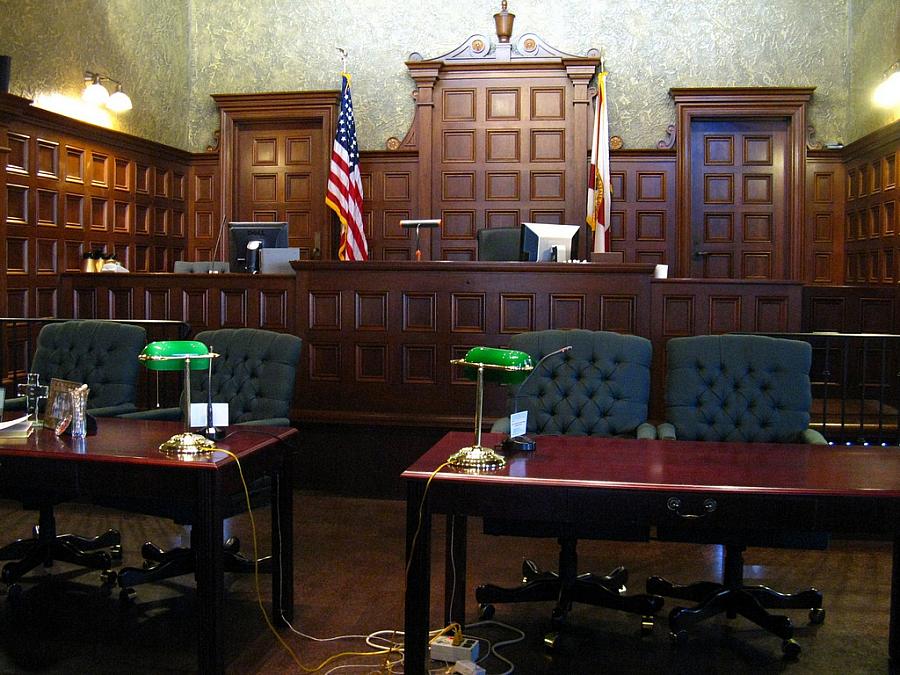The Markingson Files: Court leaves key questions in clinical trial suicide unanswered

Many investigative reporters could moonlight as court clerks.
Even with so many court records available online, they spend so much time in courthouses that they become intimately familiar with the parlance and peculiarities of court filings in multiple jurisdictions.
That's why any investigative reporter will tell you that a case dismissal does not necessarily mean a victory.
Dan Markingson's mother, Mary Weiss, sued the University of Minnesota after her son committed suicide during a clinical trial for the anti-psychotic drug Seroquel, known as the CAFE study. The university has used this court dismissal as an example of how the courts – and regulatory authorities – have found no connection between the trial and Markingson's death.
The university has good reason to feel this way. The lawsuit by Weiss against the Board of Regents for the University of Minnesota was, indeed, dismissed with a partial summary judgment in February 2008. But the question before Hennepin County District Court Judge John Holahan was narrow. He wrote:
The sole function of the trial court on motion for summary judgment is to determine whether an issue of material fact exists to be tried, and not to weigh evidence or resolve issues of fact.
Holahan ruled that the University of Minnesota was "statutorily immune from liability." He wrote that in approving the CAFE study the University of Minnesota's Institutional Review Board was performing the type of "discretionary function" that is protected from liability under the state's Tort Claims Act. He wrote, interestingly, "In fact, the Court has found only four cases nationwide in which an IRB has been sued at all . In no case has an IRB been sued for negligence."
Holahan also wrote that the product liability claim against AstraZeneca should be dismissed because of insufficient evidence that Markingson was taking Seroquel at the time of his suicide. He wrote:
No evidence indicates Markingson was using Seroquel at the time of his suicide. No evidence indicates Seroquel increased the risk of suicide in adult patients, like Markingson, at the time of Markingson's death. No evidence indicates that AstraZeneca failed to provide information to the study investigator or IRB as required by regulations.
This assessment was based on an initial drug screen during Markingson's autopsy. That screen suggested that Markingson had not been taking his medication. But a lab report came in after the summary judgment showing evidence of Seroquel in Markingson's blood. This indicates that Markingson was taking the drug prior to his suicide but may have not taken his last scheduled dose before he died.
Note that the judge's ruling is not a declaration that there was no connection between Markingson's involvement in the CAFE study and his suicide, as University of Minnesota officials have claimed.
Dr. Carl Elliott, the University of Minnesota bioethicist who has been written about the Markingson case, showed that the problems with the CAFE study weren't rooted in whether Seroquel was a suicide-inducing drug. They were rooted in whether Markingson was able to adequately consent to the study. His ability to do so was compromised by the fact that he had been involuntarily committed to psychiatric treatment. Because of his homicidal delusions, he likely was not a good candidate for a safe and scientifically sound clinical trial. The last big question is whether the study's lead investigators were too financially conflicted to provide attentive care for a very sick patient.
At least some of the questions appear to have played into why the judge let stand the claim of medical negligence against Dr. Stephen Olson, one of the doctors who oversaw the Seroquel study. In doing so, he quoted an affidavit filed by an expert witness hired by Weiss, which said that Olson had "caused Dan to enter a drug study in which he was inadequately monitored, untreated, with this lack of treatment causing his psychosis to persist, thus causing his death by ritualistic, psychotic suicide."
One of the most helpful parts of the judge's ruling, from a reporting standpoint, is the summation of the facts of the case. This is instructive for reporters, who often have to wade through literally years of filings to figure out what happened. Always look for these rulings, even if they are only on specific motions to forbid certain pieces of evidence or to block a certain expert witness.
If a reporter quoted liberally from court summaries like this one, the stories of Markingson and other patients could be fairly well told. Your outlet's libel attorney will be happy, too, because everything you cull from court documents is immune from any lawsuits.
One of the saddest details included in the court summation of the Markingson case is the description of the efforts Weiss made to advocate on her son's behalf:
Markingson's mental illness became progressively worse throughout the study. [Weiss] warned Dr. Olson and Dr. Schulz of her son's deteriorating condition on multiple occasions and only Dr. Schulz ever responded. [Weiss] believes her warnings were ignored. In April 2004, [Weiss] called her sons caregivers pleading for help and asking something to the effect, ‘What does my son have to do, hurt himself?'
The answer to that question was something no mother ever should have to endure.
Photo credit: Clyde Robinson via Flickr

